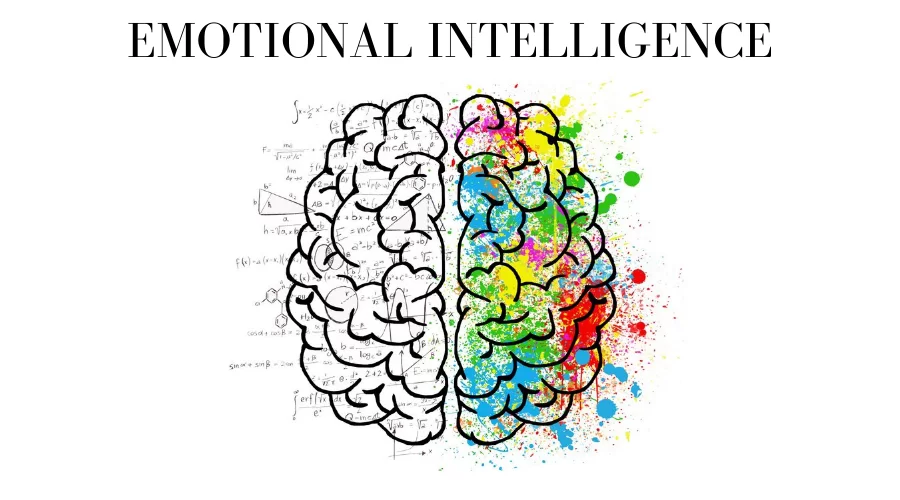The Crucial Role of Emotional Intelligence in Leadership
In today’s complex and dynamic business landscape, Emotional Intelligence (EQ) has emerged as a critical component of effective leadership. While technical proficiency and strategic acumen are essential, it is the ability to navigate and leverage emotions—both one’s own and those of others—that often distinguishes exceptional leaders. EQ encompasses the ability to perceive, understand, and manage emotions to drive better decision-making, foster meaningful relationships, and achieve organizational success. At SHARPNERR, we recognize the importance of EQ and offer targeted training designed to elevate leadership effectiveness through emotional mastery.
Key Components of Emotional Intelligence
- Self-Awareness: Self-awareness is the cornerstone of emotional intelligence, involving a deep and nuanced understanding of one’s emotions, strengths, weaknesses, and values. Leaders who are self-aware can recognize their emotional states and understand how these states affect their thoughts and behavior. This heightened level of self-knowledge enables leaders to act with authenticity and integrity, fostering an environment of trust and respect within their teams. Moreover, self-aware leaders can objectively assess situations, avoiding the pitfalls of bias and maintaining a balanced perspective.
- Self-Regulation: Self-regulation is the ability to manage and control one’s emotional responses, particularly in high-pressure situations. Leaders skilled in self-regulation are able to remain calm and composed, even when faced with adversity or conflict. This composure is crucial in making thoughtful and rational decisions, rather than reacting impulsively. Self-regulated leaders also serve as role models for resilience, demonstrating the capacity to navigate challenges and setbacks with grace and determination, which in turn inspires their teams to do the same.
- Empathy: Empathy involves understanding and being attuned to the emotions of others. It goes beyond mere sympathy and requires a genuine effort to see things from another person’s perspective. Empathetic leaders are adept at building strong, supportive relationships because they are able to connect with their team members on a deeper level. This connection fosters an inclusive work environment where individuals feel valued and understood, ultimately enhancing collaboration and teamwork.
- Social Skills: Effective social skills are essential for building and maintaining relationships, navigating complex social networks, and influencing others. Leaders with strong social skills are not only effective communicators but also skilled in conflict resolution and negotiation. They are capable of managing diverse interpersonal dynamics and fostering a collaborative team atmosphere. These skills are particularly valuable when leading meetings, driving projects, and establishing a positive organizational culture.
SHARPNERR’s Leadership with Emotional Intelligence program helps leaders connect more effectively with their teams.
How Emotional Intelligence Enhances Leadership Effectiveness
- Self-Awareness Drives Authentic Leadership: Leaders who possess self-awareness can lead with authenticity and transparency. By understanding their own emotions and behaviors, they can align their actions with their core values and principles. This authenticity builds credibility and trust, creating an open and communicative work environment where team members are more willing to share ideas and feedback.
- Self-Regulation Builds Resilience: The ability to self-regulate allows leaders to remain steadfast and composed during times of stress or uncertainty. This resilience is critical for navigating crises, managing conflicts, and providing steady leadership in turbulent times. By maintaining emotional equilibrium, leaders can make informed decisions and offer clear, decisive guidance to their teams.
- Empathy Strengthens Relationships: Empathetic leaders are able to forge strong, trust-based relationships with their team members. By actively listening and responding to the emotional needs of others, they create a supportive and inclusive workplace culture. This approach not only enhances job satisfaction but also fosters greater engagement and collaboration within the team.
- Social Skills Enhance Influence: Leaders with well-developed social skills are adept at influencing and motivating their teams. They can communicate their vision compellingly, manage conflicts diplomatically, and inspire others to achieve common goals. Their ability to navigate interpersonal relationships and adapt to different communication styles makes them influential in driving organizational success.
Practical Steps to Develop Emotional Intelligence
- Practice Mindfulness: Incorporate mindfulness practices such as meditation and reflective journaling into your daily routine. This helps increase self-awareness by allowing you to observe your thoughts and emotions in a non-judgmental manner. Mindfulness fosters a deeper understanding of your emotional responses and enhances your ability to respond thoughtfully rather than react impulsively.
- Seek Constructive Feedback: Actively seek feedback from colleagues, mentors, and team members to gain insight into how your behavior is perceived by others. Constructive feedback is invaluable in identifying areas for improvement and enhancing self-regulation and interpersonal skills. Approach this feedback with an open mind, viewing it as an opportunity for growth.
- Master Empathetic Listening: Cultivate your listening skills by focusing on the speaker’s emotions and perspectives. Employ active listening techniques such as paraphrasing, summarizing, and asking open-ended questions. Demonstrating empathy in your interactions not only builds trust but also strengthens your ability to connect with others on a deeper level.
Enhance your leadership capabilities with SHARPNERR’s comprehensive EQ development programs.
- Learn Conflict Resolution Skills: Develop strategies for resolving conflicts constructively and finding mutually beneficial solutions. Techniques such as active listening, recognizing different viewpoints, and collaborative problem-solving can help de-escalate tensions and maintain healthy working relationships.
- Lead with EQ: Apply emotional intelligence in your leadership approach by being attuned to your emotions, managing them effectively, and demonstrating empathy toward others. By modeling these behaviors, you set the tone for a positive and emotionally intelligent work environment.
Leveraging Emotional Intelligence for Career Success
- Building Meaningful Networks: Emotional intelligence is a powerful tool for building authentic professional relationships. Engage in networking with an empathetic and open approach, seeking to establish connections that are supportive and mutually beneficial. A strong network can open doors to new opportunities and collaborations.
- Adapting to Change: In today’s fast-paced business environment, the ability to adapt to change is paramount. Emotional intelligence equips you to manage uncertainty and guide your team through transitions with confidence and poise. By fostering a culture of resilience and flexibility, you can drive innovation and continuous improvement.
- Navigating Conflict and Negotiation: Use your EQ skills to handle conflicts and negotiations with empathy and strategic clarity. Understanding the emotions and perspectives of all parties involved enables you to find effective solutions and facilitate positive outcomes.
Join SHARPNERR’s ‘Negotiation with EQ’ workshop to master the art of finding win-win solutions.

SHARPNERR’s Commitment to Emotional Intelligence and Leadership Development
At SHARPNERR, we understand that emotional intelligence is integral to effective leadership and career advancement. Our ‘Career Growth and Competency Building’ program is designed to provide leaders with the tools they need to succeed in today’s dynamic business environment. Through personalized coaching, interactive workshops, and practical applications, we help professionals enhance their EQ skills, including self-awareness, empathy, and social skills. Key Features of SHARPNERR’s Programs:- Interactive Workshops: Engage in real-world scenarios and group activities that foster EQ development.
- Personalized Coaching: Receive one-on-one guidance tailored to your individual growth and leadership journey.
- Ongoing Support: Benefit from follow-up sessions and resources for continued learning and development.
- Comprehensive Curriculum: Covering areas such as self-awareness, resilience, empathy, and advanced social skills.




